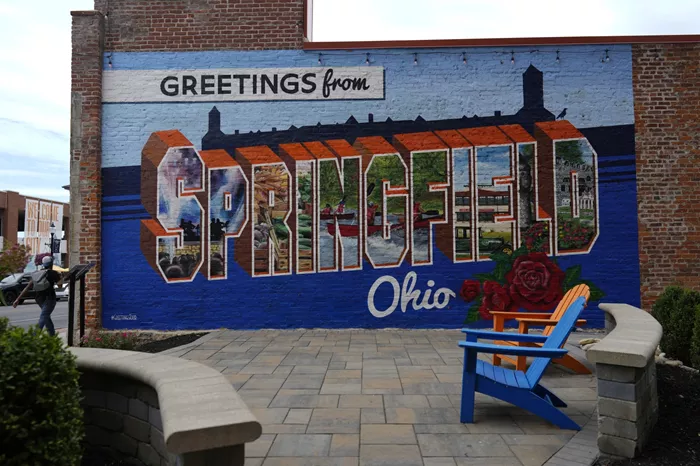In Springfield, Ohio, a mural that reads “Greetings from Springfield Ohio” adorns an alley wall, highlighting the city’s cultural vibrancy. However, Springfield has recently faced unwarranted scrutiny due to false claims about its immigrant community.
Recently, former President Donald Trump and Senator JD Vance made baseless accusations that Haitian immigrants in Springfield were involved in pet abductions and consumption. These inflammatory statements resulted in numerous bomb threats targeting schools, hospitals, and government buildings in the city. This situation underscores a persistent issue affecting immigrant communities across the U.S.: the scarcity of reliable, up-to-date local news in their native languages.
The problem has worsened since the pandemic, which led to the closure of over 150 ethnic media outlets. This left many immigrants without access to consistent, fact-based news, making them more susceptible to misinformation.
Fortunately, nonprofit newsrooms are stepping up to address this gap. These organizations aim not only to provide accurate news but also to help immigrants with practical information for navigating daily life, such as accessing shelter, food, government benefits, health care, and employment.
For instance, Documented, a nonprofit covering New York’s immigrant communities, uses platforms like WhatsApp, WeChat, and NextDoor to communicate directly with readers. This approach has led to the creation of over 150 resource guides on topics including banking, emergency shelter, and mental health support.
Similarly, El Tímpano in Oakland, California, understands that Latino immigrants often trust family, friends, and neighbors more than institutions or government sources. The outlet conducts workshops to help immigrants identify and counter misinformation within their communities.
Conecta Arizona, a digital news service, hosts daily “cafecitos” on WhatsApp, allowing readers to interact with the editorial team and experts like immigration attorneys and elected officials to clarify and debunk online misinformation.
These initiatives represent a new model for nonprofit journalism that focuses on meeting the specific needs of immigrant communities. Harry Backlund, co-founder of City Bureau in Chicago, emphasizes that nonprofit media has a crucial role in delivering essential information on housing, food, and safety, particularly in immigrant communities.
Funders focused on immigrant rights and civic engagement should recognize the importance of supporting high-quality, immigrant-focused newsrooms. Such support not only helps these communities access crucial information but also ensures that investigative journalism holds those in power accountable.
The Haitian Times, for example, has been pivotal in countering misinformation about Haitian immigrants in Springfield, despite facing threats as a result. Documented has conducted a major investigation into wage theft affecting many immigrants, leading to legislative changes in New York. Similarly, Cicero Independiente’s investigation in Chicago revealed poorer air quality in immigrant neighborhoods compared to others.
Supporting organizations like Documented, Sahan Journal in Minneapolis, and Enlace Latino in North Carolina is crucial for building a more equitable information infrastructure. Effective journalism that serves immigrant communities can address systemic inequalities and boost civic engagement.
Migrant Roots Media, for example, has co-hosted the Caravana de Madres de Personas Migrantes Desaparecidas, aiding in the reunion of over 350 migrants with their families. This work highlights the need for foundations to integrate news and information into their grant-making strategies.
Creating a robust network of accurate and useful news for America’s 46 million immigrants requires innovative thinking about journalism’s role. Embracing this approach will benefit both immigrants and the local news landscape.
Related topics:
- Algeria Reinstates Visa Requirements for Moroccan Travelers
- Immigrants: Hardworking, Kind, and Not the Enemy
- How a Small Change in US Visa Policy Could Impact Global Education


